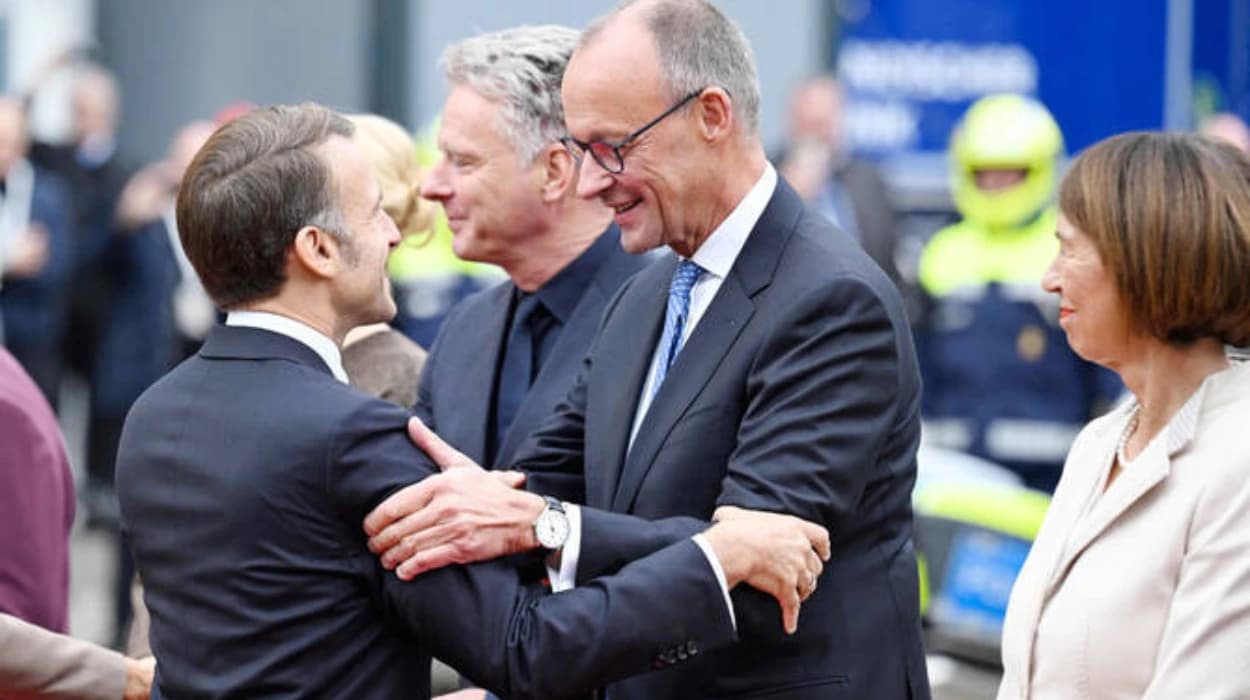Marking 35 years of German unification, Emmanuel Macron and
Friedrich Merz warned of growing threats to democracy at home and from hostile
foreign powers.
In a comprehensive speech, French President Emmanuel Macron, who was asked to participate in an anniversary ceremony in the city of Saarbruecken in southwest Germany, warned of "a degeneration of our democracies."
German Chancellor Friedrich Merz stated at the same occasion that "our liberal way of life is under attack, from both outside and within," and that "new alliances of autocracies are forming against us."
He stated that in order to "deter our adversaries from further aggression," European nations "must relearn how to defend ourselves."
Germany, which has been Ukraine's second-largest aid provider since Russia's incursion started in February 2022, is always on the lookout for sabotage and other "hybrid warfare" operations orchestrated from Moscow.
In reaction to the Russian threat and worries about US security obligations to Europe under President Donald Trump, Merz has made it a goal of his administration to assemble Europe's "strongest conventional army."
Macron also emphasized how crucial it is that Europe avoid becoming "happy or unhappy vassals, depending on the choices of those we rely on" and become "for the first time, a military power."
Additionally, he targeted social media behemoths that were "controlled either by large Chinese companies or major American entrepreneurs."
"A democratic public space where people are all masked, anonymous, and the rule is to insult others if one wants to be popular"
is what he said they were enabling.
Merz said:
“The global economic order is being rewritten. Customs barriers are being erected and selfishness is growing,”
he said.
“This too is weakening us economically.”
In order to "rebuild a 21st-century democracy," the chief of state of France urged Europeans to launch a "resurgence."
Otherwise, Europe would run the risk of turning into "a continent, like many others, of chaos, rage, noise, and conspiracy theorists."
The far-right and far-left political parties have gained momentum in France and Germany in recent years, displacing the centrist blocs that were previously in power.
At a time when Germany's export-dependent high-tech economy is facing its largest challenge in decades, Merz assumed office in February following a campaign that featured occasionally passionate rhetoric on migration from both him and his opponents.
“Years of irregular, undirected migration to Germany have polarized our country and dug new divisions into our society,”
Merz said on Friday, while asking fellow citizens to recognize the value of living in a democracy governed by the rule of law.
“Politics, the state, the government have their responsibility,”
he said.
“But the scale of the challenge must be understood by us all, by every citizen in our country.”
How might Macron and Merz's statements change EU security policy?
Both leaders reinforced plans to deepen bilateral
cooperation and form a Franco-German Defence and Security Council to respond to
European challenges in concert, signifying a new frame of leadership when it comes
to the integration of peace and security in the EU.
They are stressing the need to use France's already existing nuclear deterrent capabilities and Germany's increased investments in, and focus on, defence to form a "common strategic culture".
Germany has relaxed its constitutional spending rules to allow for increased spending on defence, which is in addition to the strategic plan to increase Europe's own military capabilities and lessen reliance on the US who have been perceived to be less reliable in recent years.
